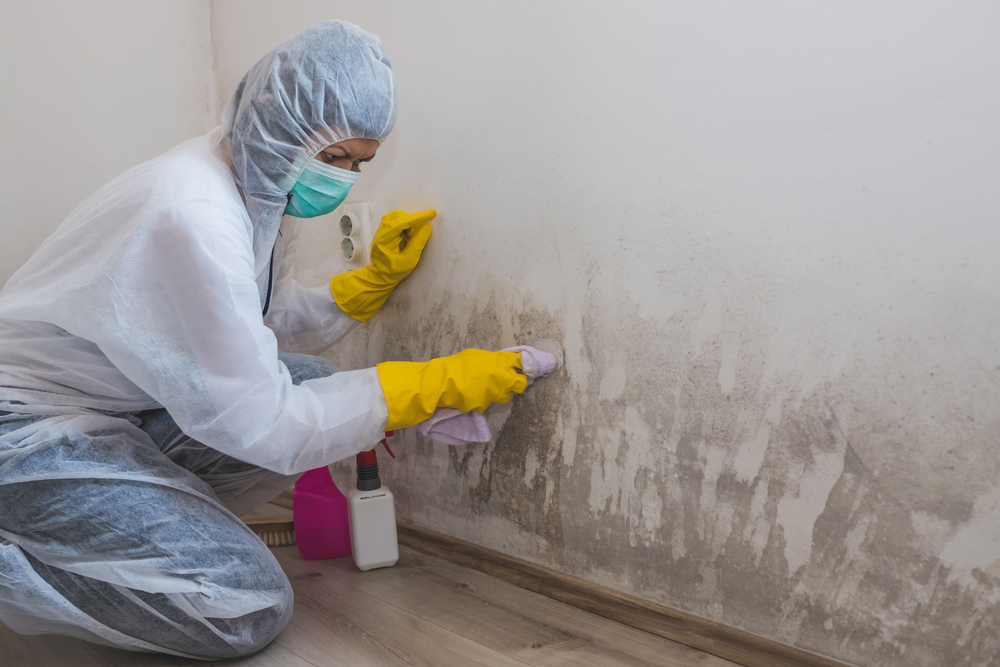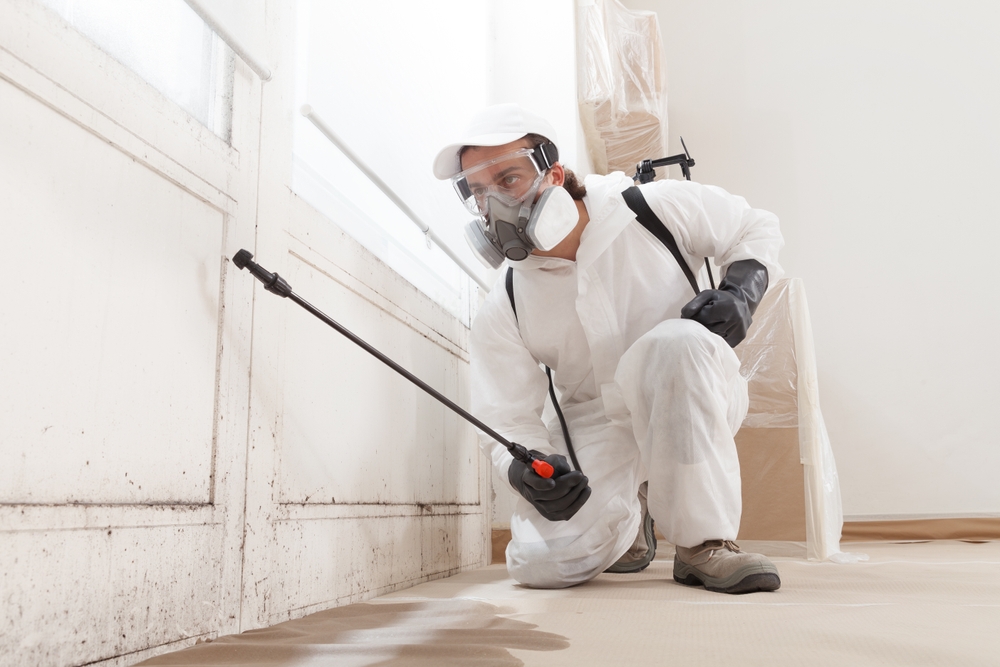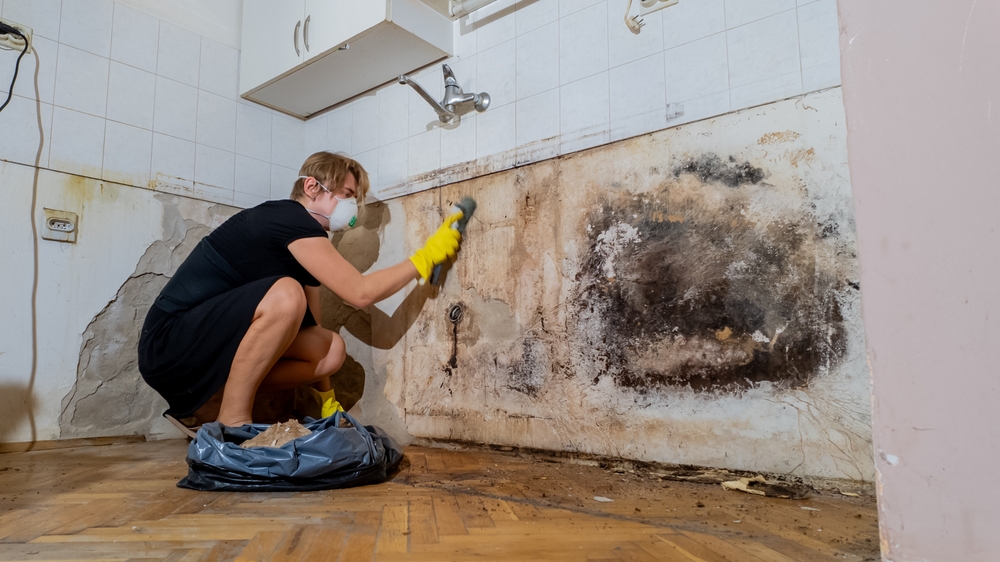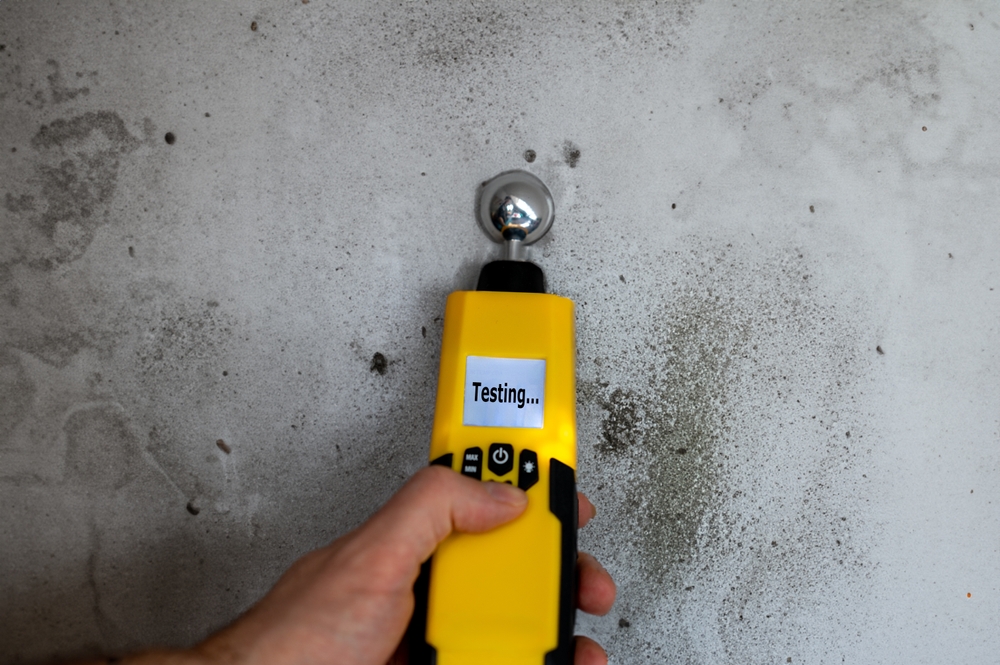More often than many people would think, mold exists in homes. It grows in damp and humid surroundings and in areas you might not even be aware of, like beneath floors, behind walls, or in ceilings. But mold can seriously compromise the air you live in within your house; it is not only a cosmetic issue. Particularly for persons with allergies, asthma, or compromised immune systems, poor indoor air quality resulting from mold can cause major health problems.
This article will look at the possibility of how mold can affect your home’s air quality and its health hazards, how mold influences indoor air quality, and how you might find, stop, and remove it. Early action can help you to safeguard your family’s welfare as well as your house.
How Mold Affects Indoor Air Quality
Mold affects the air you breathe, hence it is not only ugly. Growing mold sends microscopic particles called spores into the air. These microscopic spores can readily disperse over your house and are invisible to the unaided eye. Among the several ways mold influences indoor air quality are these:
Mold Spores: Tiny Particles That Spread Everywhere
Lightweight mold spores float through the air. Breathing them in can aggravate your lungs, nose, and throat. Because they proliferate quickly in high humidity or water-damaged dwellings, mold spores are especially problematic.
Mycotoxins: Toxic Substances from Certain Molds
Certain forms of mold create mycotoxins, dangerous compounds that could endanger people and animals. If breathed over time, these poisons can cause major medical issues. For instance, black mold is typically seen in homes with untreated water damage and is well known for generating mycotoxins.
Impact on Respiratory Health
Breathing in mycotoxin or mold spores might compromise your respiratory system. Linked to mold exposure are:
-
- Coughing and sneezing
- Shortness of breath
- Chest tightness
- Worsened symptoms in people with asthma or other respiratory conditions
Worsening Allergies and Asthma
Mold can aggravate current asthma or allergies greatly. Typical complaints are runny nose, itchy eyes, and trouble breathing. For those who already have asthma, mold can aggravate their symptoms and complicate management of their illness.

Identifying Mold in Your Home
Though it’s not always clear-cut, there are a few warning indicators you should be on lookout for mold. Early identification of mold will enable you to solve the issue before it becomes worse.
Visual Signs
Search for floor, ceiling, or wall discolouration. Though it can sometimes be white or yellow, mold usually shows as black, green, or brown patches. You also might find slimy or fuzzy sensations.
Musty Odors
Many times, mold smells clearly like musty. Though you cannot see it, if you detect this smell in some areas of your house it is a significant clue that mold could be present.
Signs of Water Damage
Water damage gives the ideal environment for mold development. Review for:
-
- Leaky pipes
- Condensation on windows or walls
- Water stains on ceilings or floors
- Warped or peeling surfaces
The Role of Professional Mold Inspection
A professional mold examination can help if you believe there is mold but can’t locate the source. Professionals find hidden mold under floors or behind walls using specific instruments. To detect the degree of mold spores in your house, they can also examine air samples.
Preventing Mold Growth
Unlike removal, preventing mold is simpler. Maintaining your house and controlling moisture will help to prevent mold.
Controlling Moisture
Reducing moisture is the best strategy to stop mold since it grows in wet surroundings. As follows:
-
- Fix Leaks Immediately: Repair any leaks you find in appliances, pipes, or ceilings right away.
- Use Dehumidifiers: Dehumidifiers help to keep interior humidity levels below 60%, therefore preventing mold development.
- Improve Ventilation: Use exhaust fans in bathrooms and kitchens to help to eliminate extra moisture from the air.
Cleaning and Maintenance
Furthermore helping to prevent mold is regular cleaning.
-
- Clean Surfaces Regularly: Clean surfaces—especially in moist places like bathrooms and basements—using a gentle detergent or vinegar solution.
- Disinfect High-Risk Areas: Particularly pay close attention to places like sink, window sills, and shower tiles that are prone to moisture.
Inspecting Your Home Regularly
Regular house inspections are especially important following floods or heavy rain. Look for evidence of leaks, water damage, or odd smells. Potential issues are more likely to be fixable the sooner you find them.

Mold Remediation
Need mold already exist in your house, you need move fast. Usually the best approach to guarantee complete resolution of the issue is professional mold cleanup.
The Importance of Professional Mold Remediation
While ordinary items can occasionally help with little mold patches, more severe infestations call for expert assistance. With the right tools and knowledge, mold remedial professionals can safely eliminate mold and stop it from returning.
The Mold Remediation Process
Professionally, you should expect this during mold remediation:
-
- Inspection and Assessment: Experts will look over your house to ascertain the degree of the mold issue and point out its source.
- Containment: They will seal off the impacted area to stop mold spores from getting anywhere else in your house.
- Mold Removal: Professionals clear surfaces from mold using certain tools and cleaning agents.
- Cleaning and Sanitizing: After the mold is taken out, the space is completely cleansed and sterilized to eradicate any last spores.
- Drying and Dehumidification: Drying and dehumidifying the impacted area entirely with fans and dehumidifiers helps to stop mold from returning.
Choosing a Reputable Mold Remediation Company
Search for experts with certificates, such those from the Institute of Inspection, Cleaning, and Restoration Certification (IICRC), while choosing a remedial firm. To be sure you are dealing with a qualified team, read reviews and seek for recommendations.
Conclusion
Your health and the air quality in your house may be much affected by mold. Knowing how mold spreads and grows will help you to stop it and guard your family.
Essential lessons:
-
- Mold releases spores that could compromise interior air quality and grows best in moist, humid conditions.
- Mold can aggravate allergies, create respiratory problems, and aggravate other medical conditions.
- Maintaining a healthy house mostly depends on stopping mold development by means of moisture management, cleaning, and routine inspections.
- Safe and efficient addressing of serious mold problems depends on professional mold remodeling.
Wait not till mold starts to seriously affect your house. Inspect your house now, fix any moisture problems, and, where necessary, see experts. Better air quality and a better living environment for your family and yourself follow from a clean, mold-free house.
Philadelphia Restoration Services
https://www.google.com/maps?cid=3399342399556699153
+1 267 668 0013
https://philadelphiarestorationservices.com/


